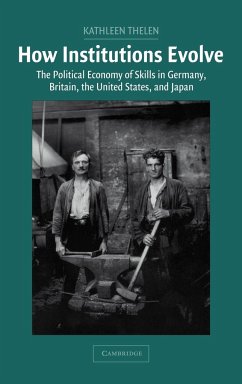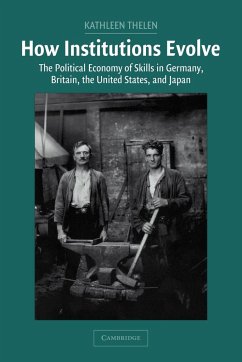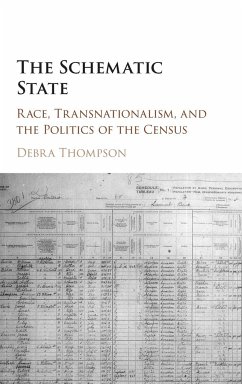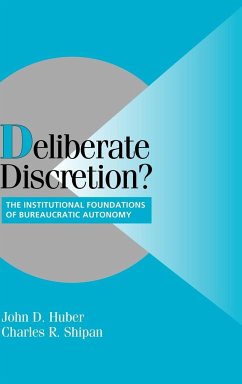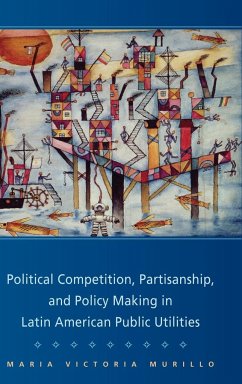
Patrons, Clients, and Policies
Patterns of Democratic Accountability and Political Competition
Herausgeber: Kitschelt, Herbert; Wilkinson, Steven I.

PAYBACK Punkte
67 °P sammeln!
A study of patronage politics and the persistence of clientelism across a range of countries.Most models of party competition assume that citizens vote for a platform rather than narrowly targeted material benefits. However, there are many countries where politicians win elections by giving money, jobs, and services in direct exchange for votes. This is not just true in the developing world, but also in economically developed countries - such as Japan and Austria - that clearly meet the definition of stable, modern democracies. This book offers explanations for why politicians engage in client...
A study of patronage politics and the persistence of clientelism across a range of countries.
Most models of party competition assume that citizens vote for a platform rather than narrowly targeted material benefits. However, there are many countries where politicians win elections by giving money, jobs, and services in direct exchange for votes. This is not just true in the developing world, but also in economically developed countries - such as Japan and Austria - that clearly meet the definition of stable, modern democracies. This book offers explanations for why politicians engage in clientelistic behaviours and why voters respond. Using newly collected data on national and sub-national patterns of patronage and electoral competition, the contributors demonstrate why explanations based on economic modernization or electoral institutions cannot account for international variation in patron-client and programmatic competition. Instead, they show how the interaction of economic development, party competition, governance of the economy, and ethnic heterogeneity may work together to determine the choices of patrons, clients and policies.
Table of contents:
1. Citizen-politician linkages: an introduction Herbert Kitschelt and Steven I. Wilkinson; 2. Meet the new boss, same as the old boss? The evolution of political clientelism in Africa Nicolas Van de Walle; 3. Monopoly and monitoring: an approach to political clientelism Luis Fernando Medina and Susan C. Stokes; 4. Counting heads: a theory of voter and elite behavior in patronage democracies Kanchan Chandra; 5. Explaining changing patterns of party-voter linkages in India Steven I. Wilkinson; 6. Politics in the middle: mediating relationships between the citizens and the state in rural North India Anirudh Krishna; 7. Rethinking economics and institutions: the voter's dilemma and democratic accountability Mona M. Lyne; 8. Clientelism and portfolio diversification: a model of electoral investment with applications to Mexico Beatriz Magaloni, Alberto Diaz-Cayeros and Federico Estévez; 9. From populism to clientelism? The transformation of labor-based party linkages in Latin America Steven Levitsky; 10. Correlates of clientelism: political economy, politicized ethnicity, and postcommunist transition Henry Hale; 11. Political institutions and linkage strategies Wolfgang C. Müller; 12. Clientelism in Japan: the importance and limits of institutional explanations Ethan Scheiner; 13. The demise of clientelism in affluent capitalist democracies Herbert Kitschelt; 14. A research agenda for the study of citizen-politician linkages and democratic accountability Herbert Kitschelt and Steven I. Wilkinson.
Most models of party competition assume that citizens vote for a platform rather than narrowly targeted material benefits. However, there are many countries where politicians win elections by giving money, jobs, and services in direct exchange for votes. This is not just true in the developing world, but also in economically developed countries - such as Japan and Austria - that clearly meet the definition of stable, modern democracies. This book offers explanations for why politicians engage in clientelistic behaviours and why voters respond. Using newly collected data on national and sub-national patterns of patronage and electoral competition, the contributors demonstrate why explanations based on economic modernization or electoral institutions cannot account for international variation in patron-client and programmatic competition. Instead, they show how the interaction of economic development, party competition, governance of the economy, and ethnic heterogeneity may work together to determine the choices of patrons, clients and policies.
Table of contents:
1. Citizen-politician linkages: an introduction Herbert Kitschelt and Steven I. Wilkinson; 2. Meet the new boss, same as the old boss? The evolution of political clientelism in Africa Nicolas Van de Walle; 3. Monopoly and monitoring: an approach to political clientelism Luis Fernando Medina and Susan C. Stokes; 4. Counting heads: a theory of voter and elite behavior in patronage democracies Kanchan Chandra; 5. Explaining changing patterns of party-voter linkages in India Steven I. Wilkinson; 6. Politics in the middle: mediating relationships between the citizens and the state in rural North India Anirudh Krishna; 7. Rethinking economics and institutions: the voter's dilemma and democratic accountability Mona M. Lyne; 8. Clientelism and portfolio diversification: a model of electoral investment with applications to Mexico Beatriz Magaloni, Alberto Diaz-Cayeros and Federico Estévez; 9. From populism to clientelism? The transformation of labor-based party linkages in Latin America Steven Levitsky; 10. Correlates of clientelism: political economy, politicized ethnicity, and postcommunist transition Henry Hale; 11. Political institutions and linkage strategies Wolfgang C. Müller; 12. Clientelism in Japan: the importance and limits of institutional explanations Ethan Scheiner; 13. The demise of clientelism in affluent capitalist democracies Herbert Kitschelt; 14. A research agenda for the study of citizen-politician linkages and democratic accountability Herbert Kitschelt and Steven I. Wilkinson.






